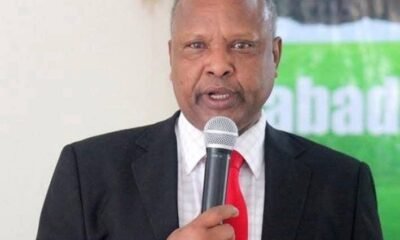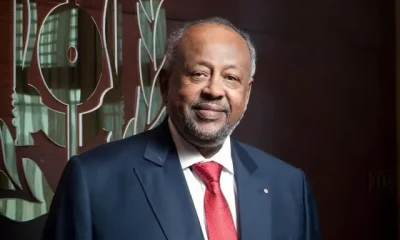Diplomatic Domination
From Vision to Victory: Djibouti’s Political Mastery as Youssouf Assumes AU Chair
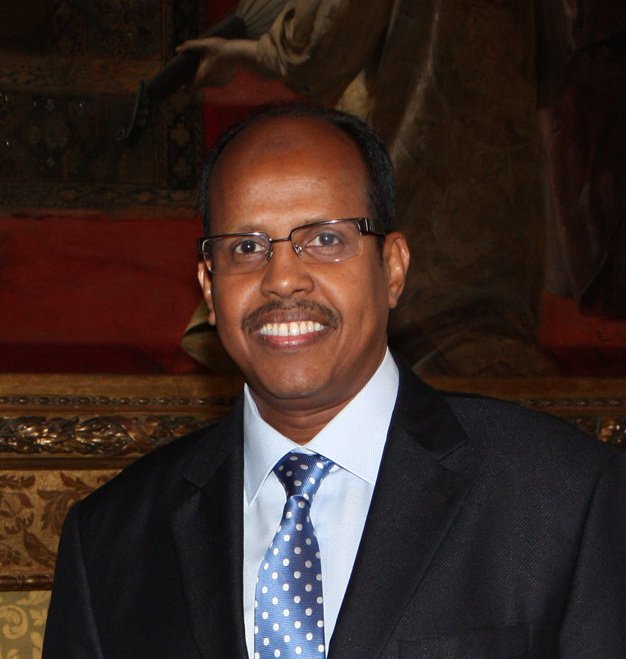
Djibouti’s Power Play: Youssouf’s Election as AU Chief Marks a New Era in African Diplomacy.
Djibouti’s Foreign Minister, Mahamoud Ali Youssouf, has been elected chair of the African Union (AU) Commission, a role that amplifies his country’s influence on the continent and sets the stage for significant diplomatic advancements. Youssouf’s election, secured through a well-planned campaign under the guidance of President Ismail Omar Guelleh and his adept ministers, exemplifies the power of effective leadership and strategic regional engagement.
Youssouf defeated formidable candidates, including Kenya’s former Prime Minister Raila Odinga and Madagascar’s Richard Randriamandrato, in a series of seven voting rounds. Demonstrating resilience and political acumen, Youssouf became the sole candidate by the seventh round, ultimately claiming victory with 33 votes—an outcome that heralds a significant shift in African diplomacy.
This triumph is not solely a testament to Youssouf’s capabilities; it is also a direct reflection of President Guelleh’s political vision and strategic mobilization. Guelleh, revered as a pivotal figure in Djiboutian history, has cultivated relationships with African leaders, particularly within the French-speaking bloc. His seasoned diplomatic approach has proven invaluable in building coalitions and securing endorsements crucial to Youssouf’s campaign.
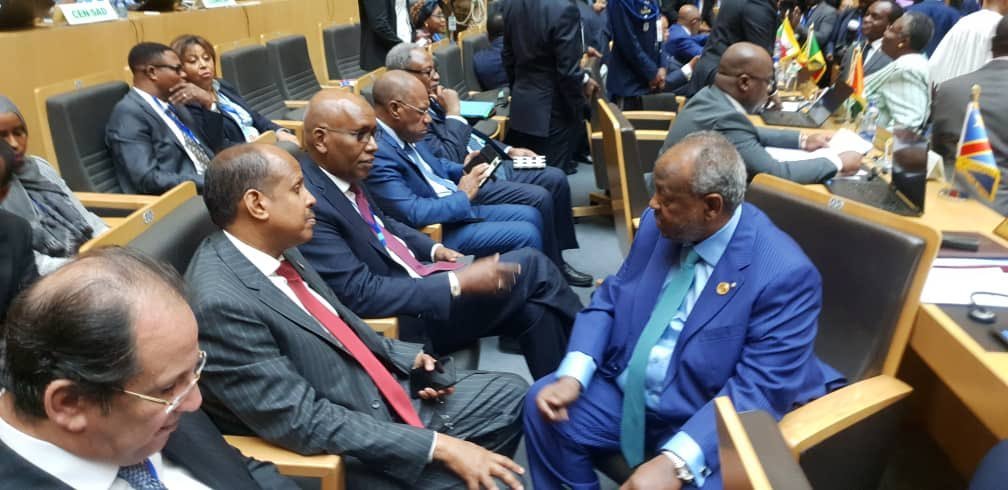
Moreover, Ilyas M. Dawaleh, Djibouti’s Economy Minister, played an instrumental role behind the scenes, deftly navigating the intricacies of regional politics to garner support from French-speaking African nations. This collaborative effort underscores the effectiveness of Guelleh’s administration in harnessing collective political will toward achieving national objectives. Dawaleh’s triumphal message on social media—“We made it! Thank you to all African leaders who made this happen. Above all, thankful to Allah. History is made”—perfectly encapsulates the sense of achievement permeating Djibouti.
The broader implications of Youssouf’s election are profound. Djibouti is positioned strategically at the crossroads of Africa, with access to the Red Sea and military bases hosting the U.S., China, France, and Japan. This geographical advantage complements its new diplomatic role under Youssouf’s leadership, enabling it to engage economies and political entities within the continent effectively.
The AU faces a critical juncture as it navigates pressing challenges, from conflict resolution to sustainable development. Youssouf has pledged to prioritize “silencing the guns” across Africa, a critical initiative aimed at preventing conflicts and resolving ongoing crises. His conviction that a capable AU will emerge from investing in skilled personnel speaks to a refreshing vision for the Commission—one that values excellence, merit, and competence.
As Djibouti’s influence rises, the momentum from this election may serve as a model for other African nations, emphasizing the importance of strategic alliances and cohesive leadership. The achievements of President Guelleh and his team illustrate the need for a new generation of politicians who embrace collaboration and preparation in the international arena. Efforts to incorporate this leadership mindset into educational curricula could inspire future leaders in Djibouti and beyond, cultivating a legacy of effective governance.
The recent AU chairmanship transition also reflects a broader movement within African politics: a commitment to reforming and revitalizing the continental body to address the diverse challenges that the region faces today. With the leadership of Youssouf, supported robustly by Guelleh and Dawaleh, Djibouti will undoubtedly play a central role in shaping the future of Africa’s political landscape.
In conclusion, the election of Mahamoud Ali Youssouf as chair of the African Union Commission marks a pivotal moment for Djibouti and for Africa. Under the visionary leadership of President Guelleh and his adept ministers, this victory signifies not just a personal achievement but a strategic advancement for the entire continent. Djibouti is poised to harness its newfound position to foster collaboration, enhance regional stability, and drive Africa towards a more united and prosperous future and the next chapter in African diplomacy is about to unfold.
Algeria’s Selma Haddadi Rises: The New Power Broker in the AU
Djibouti’s Mahamoud Secures Historic AU Commission Chairmanship
Why Djibouti’s Mahamoud Ali Youssouf Will Win the AU Chairmanship

Comment
China’s Space Grab in Africa: How Beijing Is Winning the Final Frontier as Trump Slashes U.S. Aid

While Trump retreats, China plants its flag in Africa’s skies—building satellites, telescopes, and alliances to dominate space and surveillance.
As Trump guts foreign aid, China ramps up space partnerships across Africa, embedding surveillance tech and satellites that could shift the balance in the global space race—and military power.
Space for Sale: How China Is Colonizing Africa’s Skies as America Pulls Back
While the United States under President Trump slashes development aid and scales down soft power, China is quietly launching a space takeover in Africa—one satellite, telescope, and military-grade surveillance system at a time.
From a space lab outside Cairo to high-powered telescopes tracking orbital objects from Egyptian hilltops, China is embedding itself deep into Africa’s burgeoning space infrastructure. Beneath the banner of cooperation and development, Beijing is not just gifting technology—it’s harvesting data, expanding its global surveillance network, and establishing a strategic military and political footprint across the continent.
This is no secret to Washington. Intelligence veterans like Nicholas Eftimiades warn that China is “democratizing space to enhance its authoritarian capabilities”—a global dragnet cloaked in diplomacy. And it’s working. More than 23 African nations now partner with China on space ventures, from satellite launches and ground stations to a proposed joint moon base that openly rivals NASA’s Artemis program.
The Space City outside Cairo, where Chinese engineers outnumber locals, is emblematic. The “African-built” satellites launched there? Mostly assembled in China. Data ownership? Officially Egyptian—but insiders say Beijing still taps into the stream. It’s not just soft power—it’s hardware dominance with military consequences, including anti-satellite warfare readiness and real-time surveillance of joint U.S.-Egyptian exercises.
As China builds eyes in the sky, Trump’s America is going dark—cutting U.S. Agency for International Development funds and retreating from space diplomacy. Meanwhile, SpaceX’s Elon Musk races ahead in military-grade satellite networks, but there’s little sign of the U.S. competing with China’s ground-level infiltration across Africa.
The result? A Cold War-style showdown in orbit, with Africa as the battlefield—and Trump’s retreat from development aid and soft power may have handed Beijing the launch codes for a new global order in space.
China isn’t just investing in Africa—it’s outsourcing its space program onto the continent, collecting data, projecting power, and rewriting the rules of 21st-century dominance. The moon may be next, but the race is already raging here on Earth. And right now, Beijing is winning.
Diplomacy
How Somaliland’s Foreign Minister is Redefining Diplomacy

Somaliland’s Foreign Minister, Abdirahman Dahir Adan, is a pioneering figure, spearheading the integration of digital diplomacy to reshape how Somaliland engages with the world. With a profound grasp of digital strategies, Minister Adan is actively redefining the landscape of diplomacy, emphasizing the power of digital tools to bridge distances and connect with global audiences.
Minister Adan’s leadership has ushered in a new era for Somaliland’s foreign affairs, characterized by a robust online presence and strategic digital interactions. By leveraging social media platforms, digital conferences, and real-time online engagements, his ministry connects seamlessly with international partners and citizens alike, promoting transparency and fostering dialogue without the limitations of physical borders.
This digital approach not only amplifies Somaliland’s voice on the global stage but also enhances its capacity to engage in meaningful dialogues with multinational organizations and countries across continents. Minister Adan’s strategies reflect a keen awareness of the changing dynamics in global diplomacy, where digital communication is increasingly seen as essential for policy dissemination and international cooperation.
Under his guidance, the Ministry of Foreign Affairs and International Cooperation of Somaliland has significantly expanded its digital footprint. Initiatives such as online forums, live-streamed events, and interactive Q&A sessions have become commonplace, ensuring that Somaliland’s diplomatic messages resonate across diverse audiences worldwide.
Minister Adan champions the concept of digital diplomacy not just as a necessity for modern international relations but as an opportunity for Somaliland to forge stronger, more resilient connections globally. His forward-thinking policies highlight the importance of adaptability in diplomacy, particularly for a nation like Somaliland, striving to enhance its position on the international stage amidst traditional and emerging challenges.
The success of this digital strategy is evident in the strengthened relationships and partnerships Somaliland has cultivated under Minister Adan’s tenure. As the world continues to navigate the complexities of globalization and digital transformation, Somaliland’s approach offers a compelling blueprint for how smaller nations can leverage digital tools to influence global discourse and policy.
In conclusion, Minister Adan’s visionary leadership in digital diplomacy not only enhances Somaliland’s international engagements but also underscores the transformative power of technology in global governance. As digital landscapes continue to evolve, his strategies ensure that Somaliland remains at the forefront of innovative diplomatic practices, poised for greater influence and connectivity in the international arena.
-

 Analysis10 months ago
Analysis10 months agoSaudi Arabia’s Billion-Dollar Bid for Eritrea’s Assab Port
-

 Opinion17 years ago
Opinion17 years agoSomaliland Needs a Paradigm Change: Now or Never!
-

 Interagency Assessment4 weeks ago
Interagency Assessment4 weeks agoTOP SECRET SHIFT: U.S. MILITARY ORDERED INTO SOMALILAND BY LAW
-
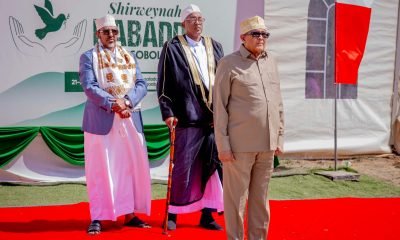
 Somaliland3 months ago
Somaliland3 months agoSomaliland Recognition: US, UK, Israel, and Gulf Bloc Poised for Historic Shift
-

 EDITORIAL1 year ago
EDITORIAL1 year agoDr. Edna Adan Champions the Evolving Partnership Between Somaliland and Ethiopia
-

 ASSESSMENTS10 months ago
ASSESSMENTS10 months agoOperation Geel Exposes the Truth: International Community’s Reluctance to Embrace Somaliland as a Strategic Ally
-
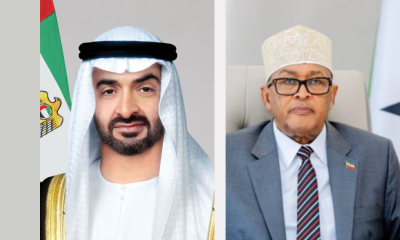
 Somaliland12 months ago
Somaliland12 months agoSomaliland and UAE Elevate Ties to Comprehensive Strategic Partnership
-
Top stories2 years ago
Ireland, Norway and Spain to recognize Palestinian state



